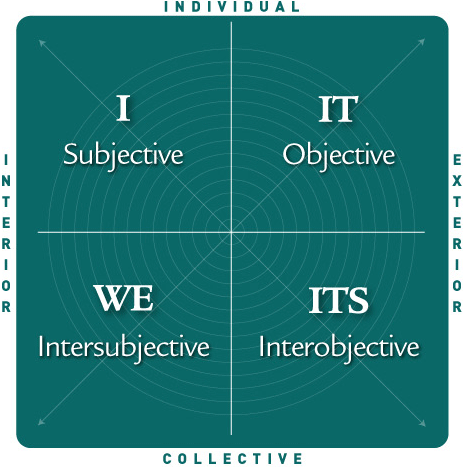For decades, many believed that drive, an aspirational vision, and business intelligence was enough to up-level an organization. Yet something has clearly been missing, as self-confidence and past achievements are no longer an assurance of personal fulfillment or future success.
Conscious leadership, or integrally inclined leadership, is the path forward because it drives transformative change.
Integral means whole, complete, or possessing everything that’s essential—and as such, integral leadership harmonizes complete, whole, and essential, and it helps broaden the perspective of each leader in order to understand, decide, and act impartially, efficiently, and functionally.
Those classified as integrally inclined leaders typically have a high level interest in personal mastery, meaning that they go beyond self-identity and ego to pursue their highest potential. They are both conscious and tend to strive for next-levels of performance and success for themselves and the organizations or groups they lead—and they remain curious and open, re-prioritizing and redefining the meaning of success as they gather more information.
The 3 Tenets of Integral Leadership
- Multi-Perspective View
One tenet of integral leadership is the ability to view most opportunities, situations, and challenges in business with different lenses from different perspectives. Think of situations where you view your organization’s problems regarding performance, perception, systems, and relationships.
As an integral leader, you have a task to integrate and balance the views as you lead. It enables you to incorporate, yet rise above, the available solutions from any single point of view. Therefore, integral leaders end up with better decisions and outcomes.
- Self-Awareness and Objectivity
Another tenet of integral leadership is that sincere knowledge of one-self is the source of positive impact and efficiency. If a leader makes decisions that are clouded by emotions and personal biases, these decisions are likely to be unfair to those whom the leaders is supposed to be supporting.
- Noble Intentions, Noble Results
Integral leaders redefine and reframe the meaning of business success and personal efficiency. Here, intention-setting is foundational. The success of integral leaders, both personally and professionally, is dependent upon efficacy, wisdom, fulfillment, and integrity.
These leaders create value through such standards, and they understand that compromising on any of them would result in short-sighted, meaningless, and incomplete actions, decisions, and solutions. In short, good decisions are reflected in an organization’s growth.
The Integral Map
The integral map is the tool through which integral leaders approach decision-making. As a magnifying glass helps you view small objects in greater detail, this map has four quadrants through which integral leaders view everything in an organization. The foundation of Integral Leadership is Ken Wilbur’s Integral Theory and Spiral Dynamics.
If you’ve never heard of these theories or terms before, that’s more than okay. This is an opportunity to dial up your curiosity and learn about a framework that could help you on your journey to becoming a conscious leader.
According to Integral Theory, it’s possible to observe, study and consider any event—regardless of what it may be from an individual perspective—as that of an outside observer as well as from the collective perspective. Essentially, integral leaders are able to view situations personally (subjectively), as another individual objectively, and also consider the many ways that the entire group may be impacted.
Did you ever think it was possible to consider the same event from an internal point of view and an external perspective simultaneously? Integral theory suggests that all of the various perspectives that one can hold can be described within four quadrants: collective, individual, objective, and subjective.

- Individual Subjective Quadrant
This quadrant represents mindsets, values, feelings, and beliefs. An integrally oriented leader operates based on integrity and sincerity. There is more attention to all that happens to an individual internally and how they can recognize it.
- Individual Objective Quadrant
This quadrant represents the individual’s behavior, what they do, and how they do it. Therefore, it focuses on behaviors, anything externally observable, and the body’s reaction under situations.
- Collective Subjective Quadrant
This quadrant represents the shared meaning that a group of individuals gives to an event. It indicates how people come up with a way of observing the world and developing their own culture in a team, society, or organization. The view determines teamwork, relationships, relationship with the surrounding company culture, and communication with others.
- Collective Objective Quadrant
Structure and the event, organization, and environment and how they unfold. Achievement of individual and organizational goals calls for accountability of fundamental elements.
The Ultimate Goal
Integral leaders have extensive knowledge of all the perspectives emerging in every moment. Besides, they can observe all significant elements at stake in any given situation. These leaders also understand that all involved participants’ points of view have a profound influence. This is where we come to understand why true diversity within organizations, teams, boards, etc. is more important than the mere appearance for public perception or meeting a quota.
As the world begins to realize that there is a better way to lead, people are looking for support to understand how they can become conscious leaders. If you’re wondering how or where to begin, let’s talk.



0 Comments